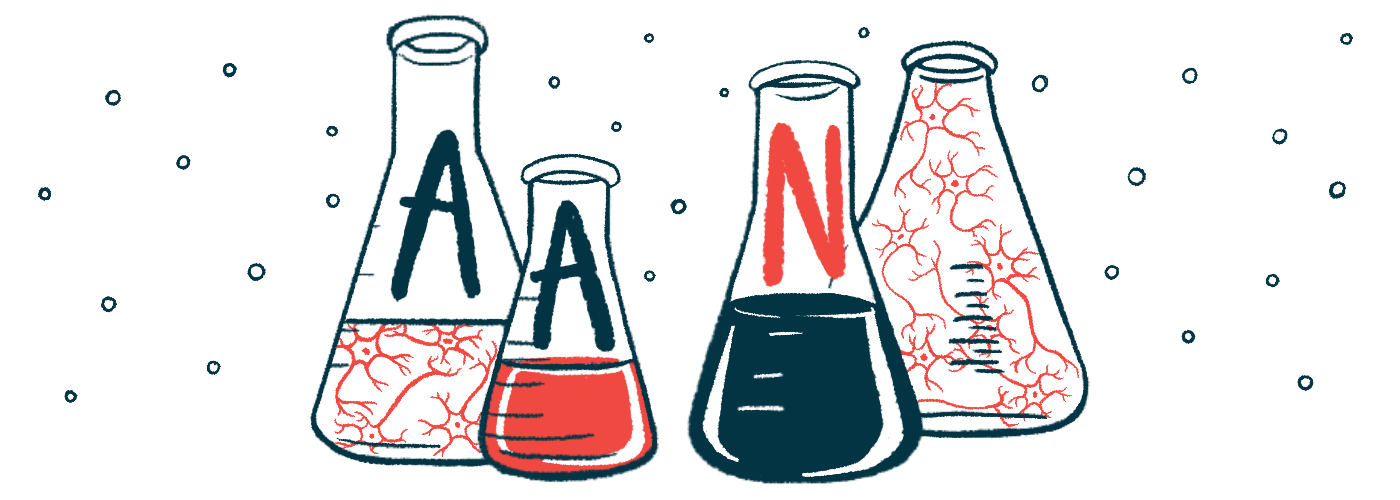#AAN2022 – Biological Clustering May Help ID Fast-progressing ALS

“Clustering” people with amyotrophic lateral sclerosis (ALS) based on biological data could be useful for identifying those most likely to have slower or faster progressing disease, a new study shows.
The findings were presented in a talk, “Fast Progression in Amyotrophic Lateral Sclerosis: Pathways and Biomarkers from Multi-Omics Analysis,” by Roland Huber, PhD, principal investigator at Singapore’s Agency for Science, Technology, and Research (A*STAR), at the virtual 2022 American Academy of Neurology Annual Meeting.
One of the major challenges in studying and treating ALS is the variability in how the disease manifests in each person. Some people experience much faster rates of disease progression than others, and the reasons for these differences remain incompletely understood.
Here, Huber and his team aimed to identify biological biomarkers that could predict fast or slow disease progression in ALS patients. They examined data from 149 ALS patients and 29 people without the disease, collected in the AnswerALS database, one of the largest investigative efforts in ALS.
The analysis included epigenomic data (chemical modifications in the DNA that change how it’s read), transcriptomic data (the extent to which different genes are being “read”), and proteomics (global analyses of protein levels).
Using this biological data, the team looked for connections with disease progression rates, which were assessed using the ALS Functional Rating Scale-revised (ALSFRS-R), and cognitive and behavioral changes, assessed by the ALS-Cognitive Behavioral Score (ALS-CBS).
Using the ALSFRS-R, fast progressors were those with scores that declined over 1.5 points per month, while slow progressors lost less than 0.5 points per month. On the ALS-CBS scale, fast progressors were patients who lost more than 0.5 points and slow progressors increased at least 0.5 points.
“We want to understand the mechanisms underlying the [variability] in this patient population,” Huber said. “We want to understand biomarkers that are determinative for fast or slow progression, and see what kind of patients or populations we are able to identify.”
Results revealed marked epigenomic and proteomic changes among the faster or slower ALS progressors. By contrast, differences in transcriptomic data were “relatively minor,” the researchers noted.
The team then conducted “clustering” analyses, where they grouped patients based on biological similarities and looked for patterns in clinical outcomes. “If we do that, we identify a certain number of specific subpopulations that have interesting characteristics,” Huber said.
For example, one cluster identified based on transcriptomic data included patients who were relatively young and initially had very mild symptoms, but then experienced a sharp decline in cognition based on ALS-CBS.
One other cluster based on proteomics data had more advanced disease on ALSFRS-R and ALS-CBS scores, but tended to progress slower than other clusters.
Another cluster, identified by epigenomic data, included patients with a comparatively fast rate of disease progression on ALSFRS-R and ALS-CBS, despite starting with low scores on both scales.
Other informative clusters were also obtained when the team used only data from ALS-related genes.
“If we perform the clustering, we can identify specific subpopulations in such a [highly variable] disease that have particular clinical outcomes, and that have specific molecular reasons for why we have these outcomes,” Huber said.
These clusters may be useful for stratifying patients in clinical trials, he added. For example, some trials enroll mainly patients with faster-progressing disease, based on the logic that a benefit from treatment would be more obvious in these patients.
Note: The ALS News Today team is providing coverage of the American Academy of Neurology (AAN) 2022 Annual Meeting. Go here to read the latest stories from the conference.








